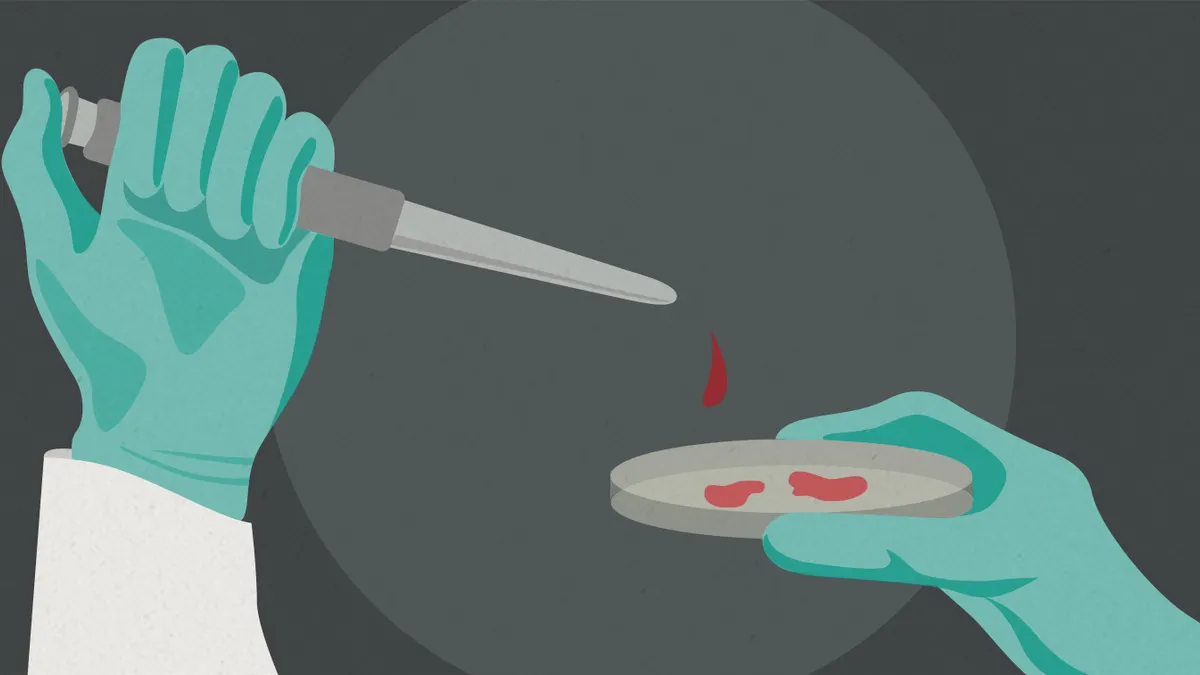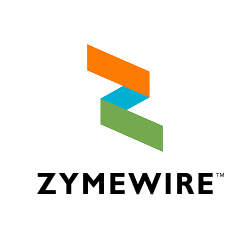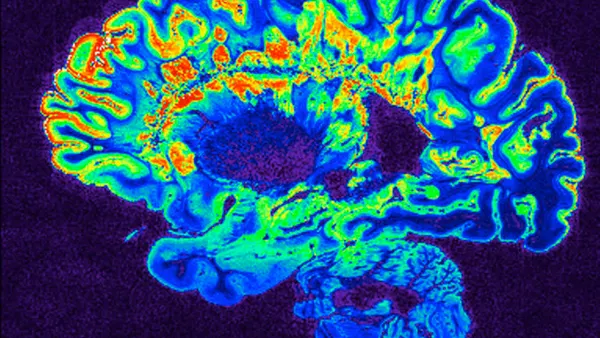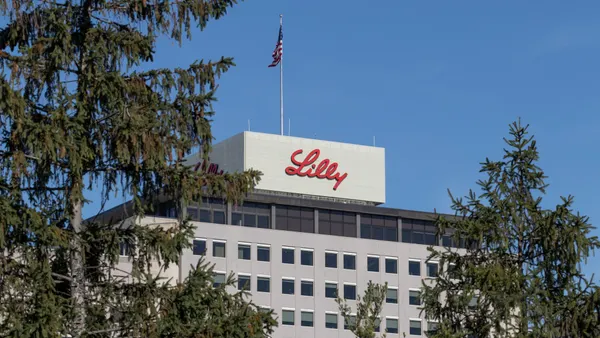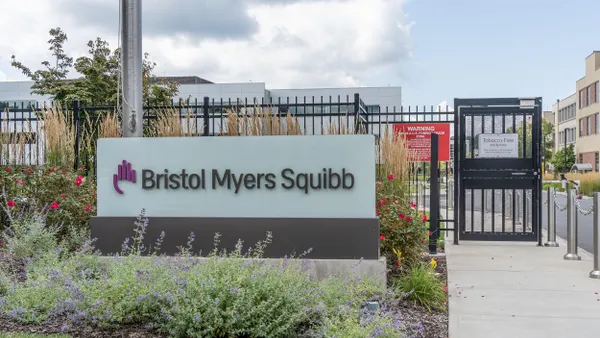Dive Brief:
- In a late-breaking abstract presented at the Liver Meeting 2017, the higher dose of Gilead Sciences Inc's GS-0976 reduced the buildup of fat in the liver, as well as lowering TIMP-1, a biomarker for fibrosis, in patients with nonalcoholic steatohepatitis (NASH).
- In the Phase 2 study, NASH patients were dosed with GS-0976 at 20 mg, 5 mg or placebo over 12 weeks. While the improvements were significant for the higher dose, there was no significant difference between the lower dose and placebo.
- There were no differences between treatment and placebo for other measures, including liver stiffness, serum ALT and PIII-NP, a serum marker of fibrogenesis.
Dive Insight:
Following its successes in near curative products in chronic hepatitis C infection, and the subsequent flattening of the market, Gilead is building a substantial pipeline in other areas of liver disease, with seven molecules in clinical development. The most advanced, selonsertib, is an ASK-1 inhibitor in Phase 3 trials in NASH and Phase 2 in alcoholic hepatitis.
Gilead picked up one of the next in line, GS-0976 (then known as NDI-010976), from Nimbus Pharmaceuticals for an upfront payment of $400 million and milestones worth up to $800 million. GS-0976 is based around another mechanism of action; it is an acetyl-CoA carboxylase (ACC) inhibitor, which acts by interfering with the first step of lipogenesis in the liver.
NASH is currently an area of much unmet need, according to Rohit Loomba, lead study author and director of the NAFLD Research Center at University of California San Diego School of Medicine. "In patients with advanced fibrosis, NASH may lead to severe complications including end-stage liver disease, hepatocellular carcinoma and the requirement for liver transplantation. Unfortunately, there are no treatments available for these patients," Loomba said.
NASH has become an area of much interest for the big pharma. Takeda Pharmaceutical Company Limited recently inked a deal with Arcturus Therapeutics Inc to develop RNA-based therapeutics for NASH, using utilizing Arcturus’ LUNAR and UNA technologies. Shire plc's volixibat (SHP626) has fast track designation and is in a Phase 2 trial. Boehringer Ingelheim picked up a NASH drug from Australian company Pharmaxis in 2015. BI 1467335 is in Phase 2a trials for NASH and diabetic retinopathy. And Novartis has picked up an option for Conatus Pharmaceuticals' Phase 2b drug emricasan,
It's not a straightforward field, though, and Gilead isn't the only company facing mixed results. While Allergan plc's drug cenicriviroc didn't meet its inflammation or liver cell damage endpoints in Phase 2, the Food and Drug Administration has allowed the company to begin a Phase 3 trial with fibrosis reduction as an endpoint.


